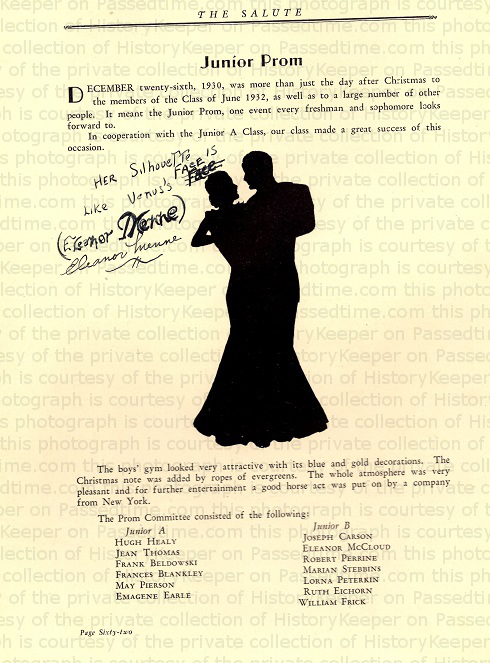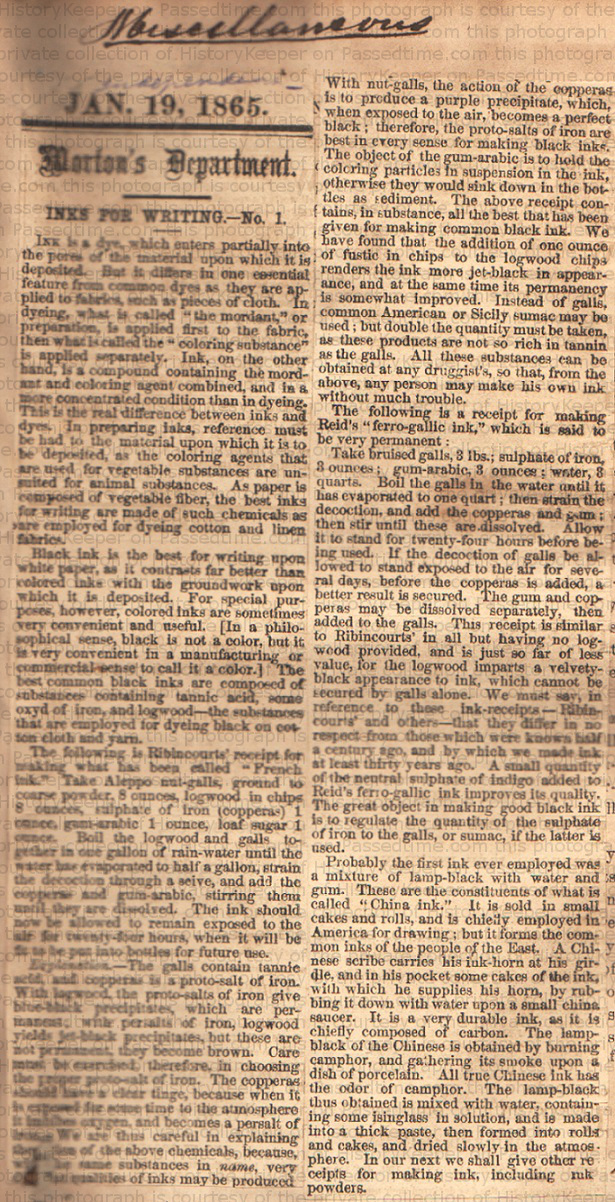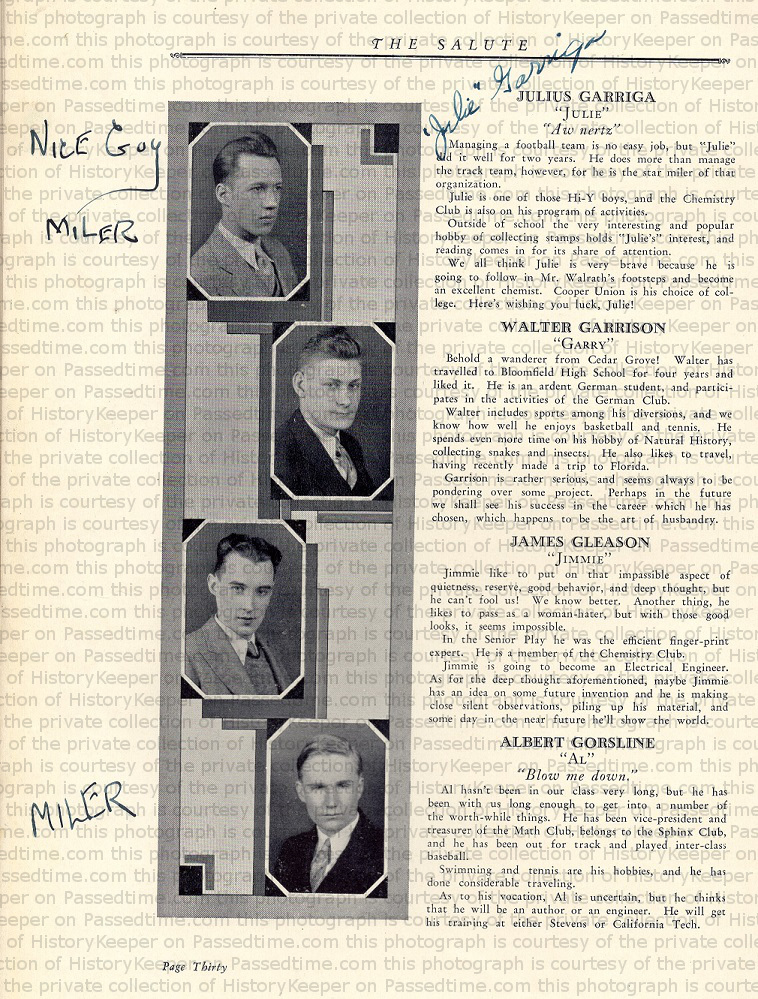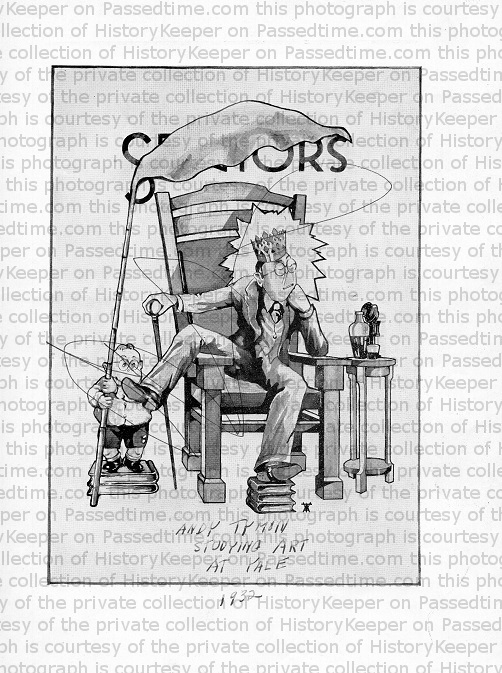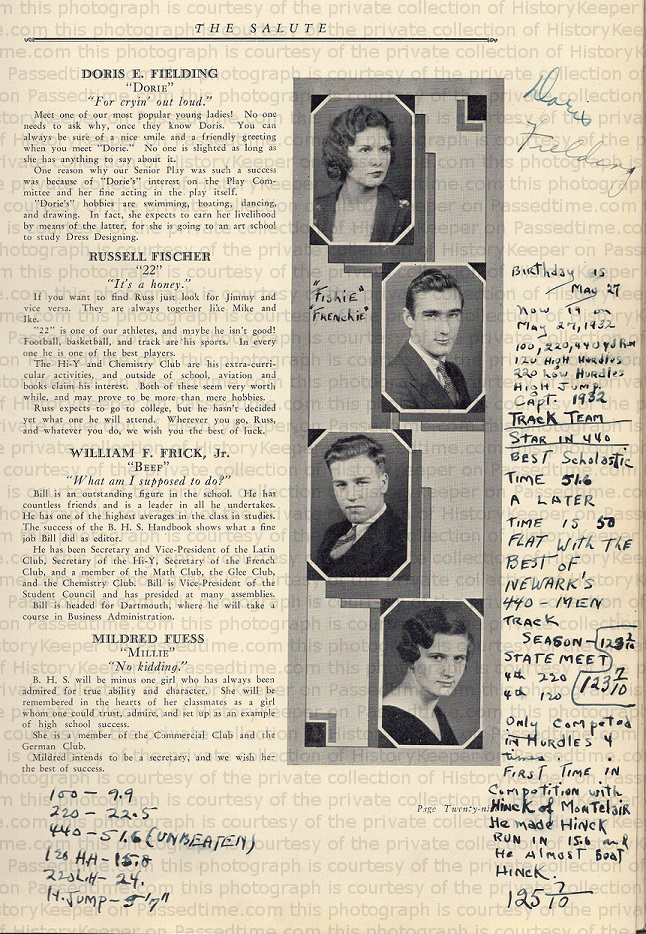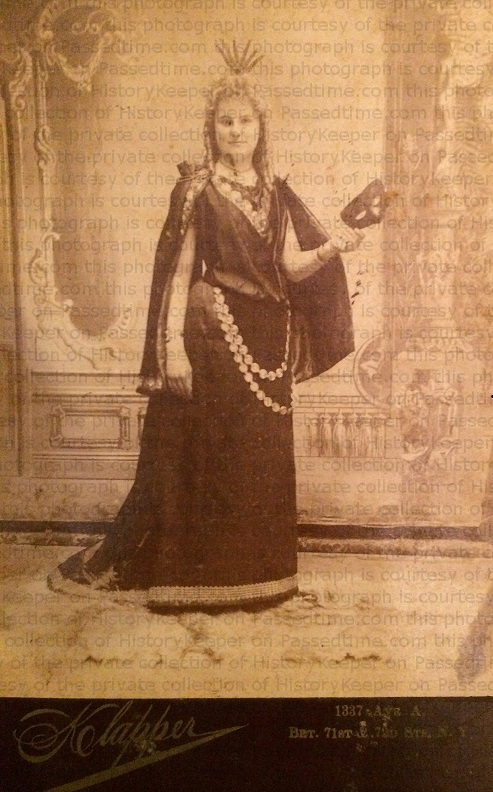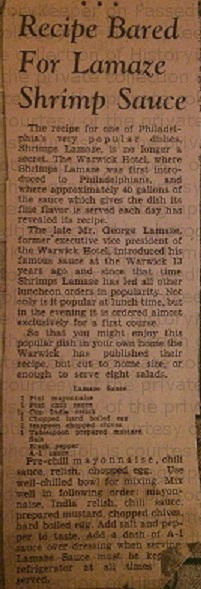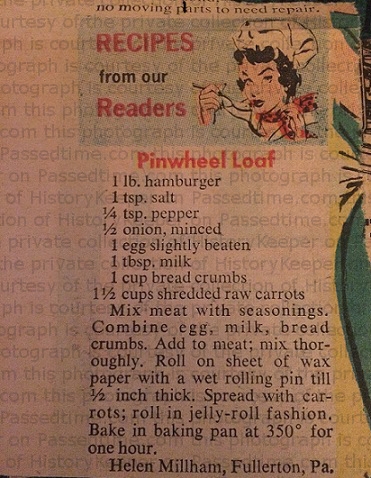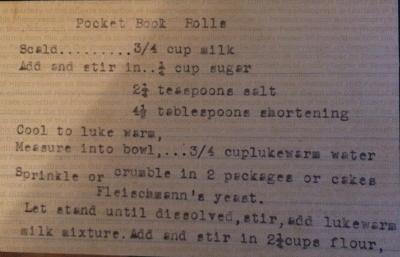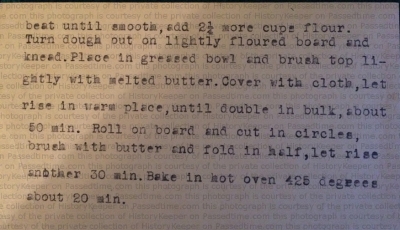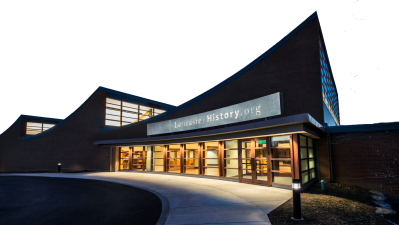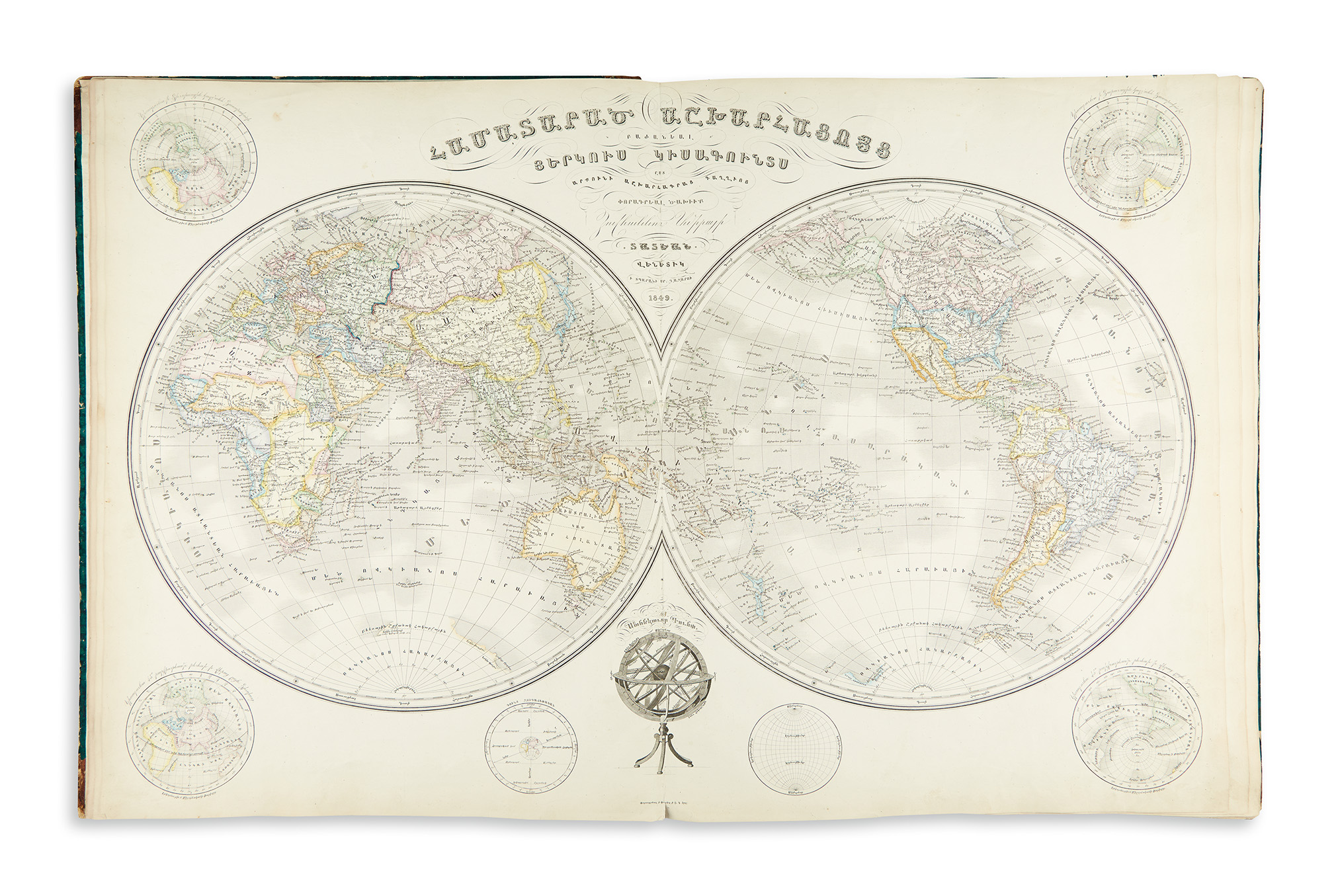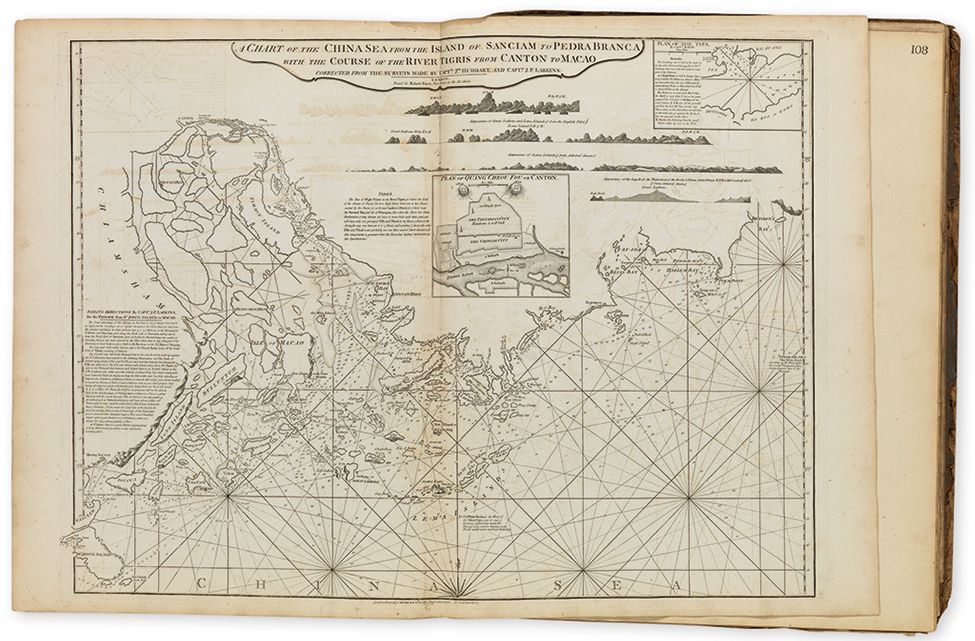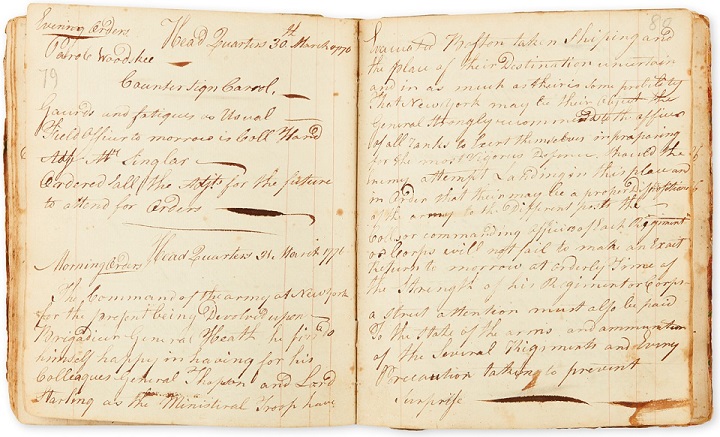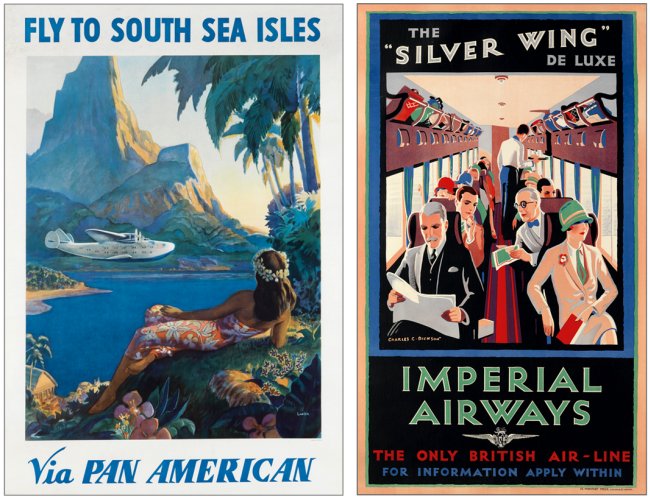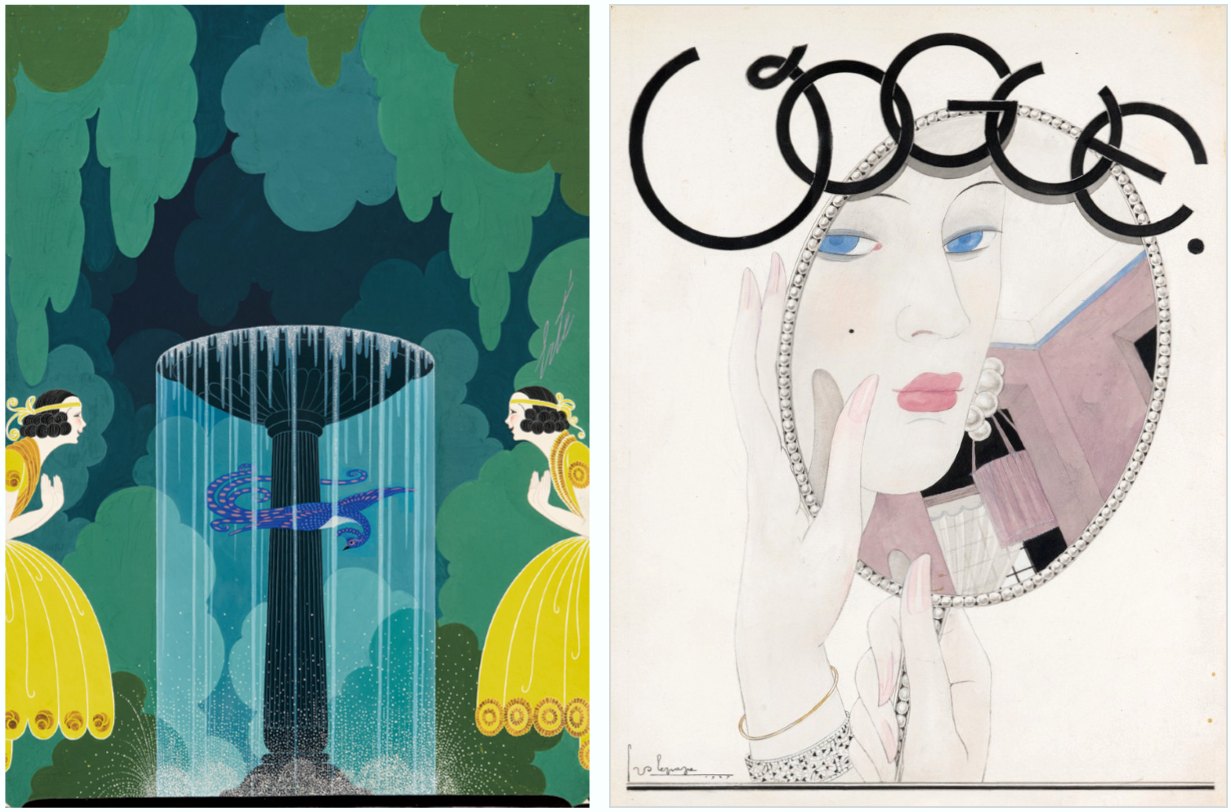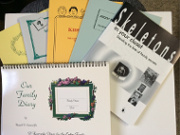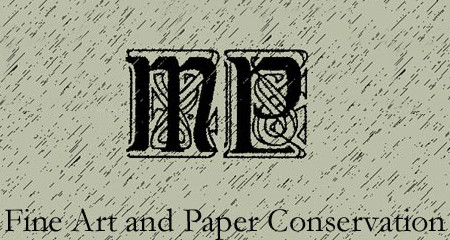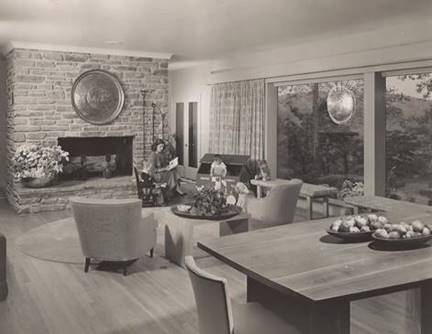Google Search
Shipwreck Hunters Find Wreck of Steamer Lost in 1862 Storm: Link to Article by The AP's Chris Carola
ALBANY, N.Y. — The wreck site of one of the earliest propeller-driven steamships to sail the Great Lakes has been found in Lake Ontario more than 150 years after it sank in a storm, killing everyone on board, a team of New York-based shipwreck hunters said Tuesday.
Jim Kennard and Roger Pawlowski, both of the Rochester area, said the wreck of the Bay State is in water hundreds of feet deep, about seven miles off Fair Haven in central New York, 155 miles west of Albany....Read More
The Salute: Bloomfield High School New Jersey, 1932 (Part 3): The Crush
The Salute, Bloomfield High School New Jersey, 1932
It seems one "Jimmie" Wheelan had a real thing for Eleanor Menne. As I stated in part one, I prefer to remember them as kids, and kids in love, so have done no further research. However, if you can share any information, readers always enjoy hearing about it. Personally, I'd love to know if Jimmie got the girl. Enjoy, Pat Earnest, Delaware 16 October 2015.
Inks for Writing ----1865
Inks for Writing 1865
From the Independence?
I apologize for the fuzz, but the article is in a scrapbook and I did not want to crack the spine. This article about inks was taken from the Independence (if I am reading it correctly). Feel free to share, but please credit Passed Time with your find. Enjoy! Pat Earnest, In Their Own Words for Passed Time. Dover, Delaware 8 October 2015
Student information from "The Salute": Bloomfield High School Year Book, 1932 (Part 2): Nice Guy Julius Garriga
We're back with Part II in "The Salute" series. If you are a Garriga family member, you will be pleased to note that your father/grandfather was noted as a "nice guy" by at least one of his fellow Bloomfield High School classmates in 1932. Next to Garriga and Gorsline, someone took the time to write "miler." As the prior owner of this yearbook (possibly Andrew Tymon), was a sports fan, I suspect "miler" has something to do with track and field. Enjoy, Pat Earnest for Passed Time, Dover, DE. 6 October 2015
PS: Additional information is always welcome on Passed Time.
Student information from "The Salute": Bloomfield High School Year Book, 1932 (Part I): Andy Tymon and Russell Fischer
One thing becomes apparent when going through old school yearbooks*--our parents and grandparents were as lost and confused as we were in high school! I'd like to remember these kids from 1932 as they were in 1932, so I did no further research on them. If Russell Fischer was nineteen at the time of this yearbook, as the entry indicates, he and his fellow classmates were at a prime age to march off to war in '41.** Let's enjoy their moments when they dreamed of "studying art in yale" or were enjoying their moment in the sun via sports. Enjoy! Pat Earnest--In Their Own Words for Passed Time 5 October 2015, Dover, Delaware
* Why not scan the entire yearbook? I considered doing so, and time-permitting (or enough people making the request) and I might attempt it. For now, other sites scan yearbooks, such as Old-Yearbooks.com. (I don't know if they charge or not). In Their Own Words, however, is my feeble attempt to flesh out people from the past and present them as, well...people. They were far more than a birth and death date. They had their own trials or, like Fischer, their own moments of glory. Through their words, the past becomes accessible and enjoyable.
**Passed Time's readers love extra information. If you know anything about Andy Tymon or Russell Fischer, please share.
The St. John's Bible at the Biggs Museum of American Art
Now that you've read about the St. John's Bible here on Passed Time, you realize you would love the opportunity to see this spectacular undertaking. The organization that commissioned the St. John's Bible, Saint John's Abbey and University in Collegeville, Minnesota knew it would be a draw (even though they were somewhat surprised at the momentum the St. John's Bible has enjoyed). They wisely left the bible unbound, in order for it to tour around the globe.
The Biggs Museum of American Art in Dover, Delaware will exhibit 35 leaves from the Bible. The exhibition, Illuminating the Word, will begin on December 4, 2015.* Check back on Passed Time for developments regarding this exhibition. Best, Pat Earnest 21 September 2015
*Passed Time's goal is to eventually go global. Okay, some of our readers and contributors are from Europe, so.... even more global. As such, it is not my intent to focus only on Delaware or the mid-Atlantic region. I just happened to know about this particular exhibit for very obvious reasons. Remember, non-profits can always advertise on Passed Time free-of-charge and space provided. email pcsuter@hotmail.com for specifics.
1882 Recipe for Fried Bread and Dip
Fried Bread and Dip
Roll some light biscuit dough an eight of an inch thick, cut it in forms three inches long, and one inch wide, and fry in hot lard, shaking the kettle while frying; fry to a light brown. Have ready a dip made by stirring into boiling milk, --say one pint,--one tea-spoonful of salt and one quarter of a pound of butter into which one table-spoonful of sifted flour is braided; break open each fried cake, drop it into the dip, put them into your dish, and when the dish is full, pour in as much of the dip as you like, and serve. This is an excellent breakfast.
Taken from The Practical Cook Book; Containing Upwards of One Thousand Receipts: Consisting of Directions for Selecting, Preparing and Cooking all Kinds of Meats, Fish, Poultry, and Game, Soups, Breads, Vegetables and Salads. Also for the Making of all Kinds of Plain and Fancy Breads, Pastries, Puddings, Cakes, Creams, Ices, Jellies, Preserves, Marmalades, etc. etc. etc. Together with Various Miscellaneious Receipts, and Numerous Preparations for Invalids. By Mrs. Bliss, Philadephia, E. Claxton and Company, 920 Market Street, 1882. p. 270
A Refreshing Story: From the Realms of Mystery and Enchantment Lebanon, PA. 1902
This delightful tale about the Ulrichs and their stolen money was found in the Lebanon Semi-Weekly News. January 2, 1902. Enjoy! Pat 14 September 2015 Dover, DE
Stolen Money Recovered
World War 2: Battle of Bologna
In the warm, dust filled April air of Bologna, Italy you could hear bullets whiz through the streets. The smell of blood from dead bodies that were days ole, and the cordite burned the nosed of soldiers. The city was hurt, from the mortars and artillery in the surrounding mountains and rivers to the conflicts in the heart of the once gorgeous city. Buildings were crumbling from the furious shots coming from the gunned warriors. If you were far enough away from the battles you might even hear the cries of the Italian citizens and see people grabbing necessities before escaping to the safety of their homes. The bodies of soldiers were drenched in sweat from dodging bullets and the heavy uniforms on their backs. The Polish 2nd Corps was pushing the Germans back even with the number they had lost. If the combatants weren’t scarred already from past battles, they were now, physically and mentally. Blood was flying from comrades and enemies alike staining scarring eyes and streets. Crumples bodies hidden away from the brutal attacks behind destroyed buildings and vehicles. Some tending to the wounds from scared enemies, even if it wasn’t theirs. Others were waiting to be taken from this world of hatred, or weeping over those who were lost.
The German soldiers and soldiers from the allies were exhausted. In the Apennines, it was winter, and the allies’ supplies were being shipped off to other operations nearby, however they still fought under Lt. Gen. Truscott who was replacing Maj. Gen. Lucas in 1944. In this harsh winter Lt. Gen. Lemelson had three lines: the first in the valleys filled with trees for excellent cover, the second on the Po Valley which varied from 150-500 yard with natural fortifications on both banks, and the third in the Alpine foothills which still had trenches and placements for artillery from WWI. Even though the German “veterans” lacked vehicles, fire power and air support, they maximized tactical potential during the winter. The reason was that the allies wanted to get to the “soft underbelly of Germany” through Italy and Bologna was a boundary for both sides. The allies didn’t want to destroy the German troops, but penetrate the German front and seize enough territory to have a base for more operations in Po Valley.
The reason for the allies being the victor on April 21, 1945 may have been for the fact that they would replace tired troops with those troops that were in the back, and fix broken machinery and slowly get more supplies. The Allies had used a bullhorn formation with the British and Americans on the flanks and the Polish Corps going through the city attacking the isolated German troops and pushing them back. At 6:15, Bologna, Italy was under Polish liberation and the Italians welcomed them, and hours later Americans showed up late with tanks.
Do You Recognize Me? Klapper Studio New York: Cabinet Card of a Performing Artist
Do you Recognize me?
She was found in a box of photographs. For the most part they were all unidentified, but I suspect someone out there might know who this performer is--if so, please share. Klapper is also proving a bit difficult to track down, which is rare. Usually, there is some obtainable information about photographers. If I find anything, I will be sure to update. Until then, enjoy. Best, Pat Earnest 9 September 2015 Dover, Delaware PSSSTTT: As always, tell your friends about Passed Time. We love to hear from new people.
1882 Recipe for Liquorice Tea
Liquorice Tea
Bruise half a dozen sticks of liquorice, pour a pint of boiling water over them, and let them steep, under a close cover, until the water is cold.
This was found under the "Preparations for Invalids" section, but does not say when one should drink "liquorice" tea or what symptoms it might treat. If anyone knows some uses, be sure to pass along! Pat Earnest Dover, Delaware, 5 September 2015
Taken from The Practical Cook Book; Containing Upwards of One Thousand Receipts: Consisting of Directions for Selecting, Preparing and Cooking all Kinds of Meats, Fish, Poultry, and Game, Soups, Breads, Vegetables and Salads. Also for the Making of all Kinds of Plain and Fancy Breads, Pastries, Puddings, Cakes, Creams, Ices, Jellies, Preserves, Marmalades, etc. etc. etc. Together with Various Miscellaneious Receipts, and Numerous Preparations for Invalids. By Mrs. Bliss, Philadephia, E. Claxton and Company, 920 Market Street, 1882. page. 288
Middle Child-ism Number One
As I was studying the Gemrig family, known for providing the Union Army with surgical instruments during the Civil War, I was reminded of a moment with my kids. Our middle child usually is a quiet and laid back kind of kid. He is frequently found lost in his own thoughts and adrift in his own little world. He can, well...he marches to his own drum. Let's just leave it at that.
When the children were young I took them to a Civil War reenactment. We entered a tent where two soldiers were rolling around on cots in obvious pain. Another was sitting dazedly against a center post. A long table was set up, littered with various surgical instruments and next to that table was a bucket strewn with body parts. Two men stood behind the table, their aprons bloodied, when one of them asked my kids, "Can you tell what I do?" Before anyone else could speak, Middle Child proudly piped up, "You are a chef!"
Best, Pat Earnest Dover, Delaware 27 August 2015
1841 Doggerel Poetry from Anonymous Springville Author
Nineteenth Century Doggerel Poetry
Bursts of creative poetry can appear in the strangest of places.A "poet" wrote the following two rhymes in a daybook (a book of handwritten daily business transactions) that dates mid-nineteenth century and is probably from Pennsylvania. The poet should have stopped with the first line of the first poem:
I never lik[e] the task of writing
In a book for public eye
But a Friend that I delight in
Evry [sic] way to Please I'll try.
To Miss [blank] When thou are home midst pleasure of
I would have the[e] some times to think of me
And may I cause to live
whenever I forget to think of thee.
The second poem reads:
Love Love is a feeling none can well [illegible word that ends "cain"]
Tho it prevails in evry [sic] action of our Life
Love is a passion we defy in vain
As it will come despit[e] of evry strife.
Love is a passion then in some
as pure As the fresh tears it causes apt to flow
Love is a malady that naught can cure
It is an ill that comes to high and low.
The poet was probably too embarrassed to sign his name, but he ended "Springville, July 7, 1841."
Nicky Pickert
Acid[ic] Drinks 1882 Used for Fever
Acid Drinks
1. Pour half a pint of boiling water upon one table-spoonful of the best TAMARINDS, cover them closely, and let them steep until they are cold.
2. Pour half a pint of boiling water upon one table-spoonful of CURRANT JELLY, and stir until the jelly is all dissolved.
3. CRANBERRIES and BARBERRIES may be used in the same way to make very refreshing acid drinks for persons recovering from fevers. Pat Earnest, Dover, Delaware 24 August 2015
Taken from The Practical Cook Book; Containing Upwards of One Thousand Receipts: Consisting of Directions for Selecting, Preparing and Cooking all Kinds of Meats, Fish, Poultry, and Game, Soups, Breads, Vegetables and Salads. Also for the Making of all Kinds of Plain and Fancy Breads, Pastries, Puddings, Cakes, Creams, Ices, Jellies, Preserves, Marmalades, etc. etc. etc. Together with Various Miscellaneious Receipts, and Numerous Preparations for Invalids. By Mrs. Bliss, Philadephia, E. Claxton and Company, 920 Market Street, 1882. page 286
Circa 1940s recipe for Shrimps Lamaze from the Warwick Hotel, Philadelphia
This is the recipe, also shown in a longer article on Passed Time if you want backstory. I would love to credit the newspaper that contained this clipping, but I cannot find it. In any event, enjoy. Pat Earnest Dover, Delaware 19 August 2015
PS--Feel free to share this, but we would really appreciate any credit coming to Passed Time.
Recipe for "Pinwheel Loaf" by Helen Millham of Fullerton, Pennsylvania
The following recipe is a contribution made by Helen Millham of Fullerton, Pennsylvania, to an anonymous newspaper. As it turns out, Millham was a somewhat prolific writer who contributed not only recipes, but advice and anecdotes to periodicals across America. (full Passed Time article) Enjoy the recipe. Pat Earnest Dover, Delaware 17 August 2015
Pocket Book Rolls
Pocket Book Rolls
The following recipe for "Pocket Book Rolls" fell out of a book at me, literally. I figured since it is vying for attention, I'd better share. Hope you enjoy! --Pat 9 August 2015, Dover, Delaware**
***Photos Courtesy of Passed Time. If you choose to share, please cite www.passedtime.com as your source. The attention and credit is much appreciated.
Summer Soup Recipe from 1882
Summer Soup
Take a neck of mutton, joint it, break the bones, and put it into your soup-pot, adding four quarts of water to every five pounds of mutton. Put the pot on the fire, and let it boil slowly four or five hours; then strain off the liquid and return it to the soup-pot, after carefully removing all the fat from the surface; then add to it three turnips pared and sliced thin, two young onions sliced, a half tea-spoonful of powdered sweet marjoram, a half tea-spoonful of Tarragon, a table-spoonful of nasturtian seeds, and a sufficient quantity of salt and pepper to season it well. Let the whole boil until the vegetables are pulp; then you may add, if you like, dumplings, made of flour and butter. the soup is very good without the dumplings, page 12. HK 4 August 2015, Dover, Delaware
Taken verbatim from Taken verbatim from The Practical Cook Book; Containing Upwards of One Thousand Receipts: Consisting of Directions for Selecting, Preparing and Cooking all Kinds of Meats, Fish, Poultry, and Game, Soups, Breads, Vegetables and Salads. Also for the Making of all Kinds of Plain and Fancy Breads, Pastries, Puddings, Cakes, Creams, Ices, Jellies, Preserves, Marmalades, etc. etc. etc. Together with Various Miscellaneious Receipts, and Numerous Preparations for Invalids. By Mrs. Bliss, Philadephia, E. Claxton and Company, 920 Market Street, 1882.
Eighth grade memories "year book" album
A small album of "Golden Memories" published in 1956 by the eighth grade of Washington Township Consolidated School, Washington, New Jersey, shows the charm of a small school experiencing growth. Students included a poem thanking their teachers, including Mrs. Kinnaman who was "stern but nice" and the "kind and sweet" Mrs. Smits. Pictures of the bright young faces in the class of '56 add to the charm, for they are accompanied by tantalizing quotes such as "equipped with a ready smile," "class screamer," "always good for a laugh," "poker face," "card shark and saxaphone player," "never fails to get caught," and "after school hustler."
To their credit, the eighth grade expressed "appreciation for the help and unlimited co-operation extended to us by the teachers and others who have helped us to better understand the problems of life we will face in the future." By now, these eighth graders are in their early seventies. They have gone through Vietnam, the Civil Rights movement, and computer-age "learning curves," geek-speak, and data-overload that add considerable frustration to the hardest job of all -- raising children.
The "Class History" portion of the album ends with, "As we come to an end, we find it has been fun for some and just life for others, but we are sure they will all be very happy in the future." Enough time in the old "time will tell" theory might show that "fun for some and just life for others" is as good as it gets.
Agnes Shoemaker
An 1882 Recipe for Chicken Broth
Chicken Broth
"Wash clean the half of a young and tender chicken, break the bones, cut it into pieces, put the pieces in a stew-pan with one quart of water, cover the stew-pan closely, set it upon a moderate fire, let it come very gradually to a boil; then skim it well, add a salt-spoonful of salt, cover it closely, let it boil twenty minutes, strain it through a colander, and serve.
If you wish the broth more nourishing, add a tablespoonful of washed rice when you put the broth over the fire; the rice will make it quite thick." p. 283
Taken verbatim from The Practical Cook Book; Containing Upwards of One Thousand Receipts: Consisting of Directions for Selecting, Preparing and Cooking all Kinds of Meats, Fish, Poultry, and Game, Soups, Breads, Vegetables and Salads. Also for the Making of all Kinds of Plain and Fancy Breads, Pastries, Puddings, Cakes, Creams, Ices, Jellies, Preserves, Marmalades, etc. etc. etc. Together with Various Miscellaneious Receipts, and Numerous Preparations for Invalids. By Mrs. Bliss, Philadephia, E. Claxton and Company, 920 Market Street, 1882.
The Hand that Rocks the Cradle Can Rock Hitler to His Foundations
I was trying to get back to my "Dear Alice" series here on Passed Time. For those who are new to the site, "Dear Alice" is the name of a series of blogs related to a child's autograph book from Nanuet, New York, written in 1936. The entries have led to a series of blogs about the book and its anonymous owner.
The latest entry signed by Dorothy Fahnestock is proving a bit....well, there is more information than I anticipated, and I want to do it right. I thought that this brief look into the support efforts of Nanuet's citizens in World War Two might serve as a placeholder until I can return to "Dear Alice."
Although I would love to take the credit for the title I used, I cannot, it came from the following article. This is a portion of an article from the January 22, 1943 edition of the Orangetown Telegram and Pearl River Searchlight.* If anyone were ever curious as to the questions asked of "Rosie the Riveter," before she got the job, here you go.
Drive for Pupils
"....In reply, the ladies in charge fired back questions at the applicants. "Do you sew? " "Did you ever play a piano?" "Can you crochet? ' "Run a lawn-mower?""Have you stood over a kitchen stove for hours at a time? " For, according to experts who testify that trainees from the U. S. Defense Schools have shown a far better record than haphazardly trained workers in the factories, if a woman can do these things she has more than the necessary aptiture
to shape, drill and rivet the aluminum parts that go to make up a modern fighting plane. Apparently the hand that rocks the cradle can rock Hitler to his foundations..."
*I tried to manipulate the web page to find the author of the cited article so I could give due credit. I was unable to do so, but know the work is not mine.
Author HistoryKeeper, currently lives in Dover, Delaware, with family, both two- and four-footed. I am a history enthusiast, who has great regard for the past and is especially proud of the Pennsylvania German culture. In addition to my work here at Passed Time, I am currently working on a project for the German Historical Institute's Immigrant Entrepreneurship: German-American Business Biographies (http://www.ghi-dc.org). I also contribute to various newsletters and am working on another book...or two. Feel free to email me at pcsuter@hotmail.com for questions, comments, information, a shared love of history, an idea, etc. Be aware, Files with Attachments will not be opened, but immediately deleted.
1882 Recipe for Rice Oven Bread
Rice Oven Bread
To one quarter of a pound of rice, boiled very soft, add three quarters of a pound of wheat flour, a little salt, one gill of yeast, and one gill of milk; beat all well together, put it into a buttered pan to rise, and when it is light, bake it in a moderate oven.
Taken from The Practical Cook Book; Containing Upwards of One Thousand Receipts: Consisting of Directions for Selecting, Preparing and Cooking all Kinds of Meats, Fish, Poultry, and Game, Soups, Breads, Vegetables and Salads. Also for the Making of all Kinds of Plain and Fancy Breads, Pastries, Puddings, Cakes, Creams, Ices, Jellies, Preserves, Marmalades, etc. etc. etc. Together with Various Miscellaneious Receipts, and Numerous Preparations for Invalids. By Mrs. Bliss, Philadephia, E. Claxton and Company, 920 Market Street, 1882. p. 274
Apple Tea Recipe from Preparations for Invalids 1882
Two Recipes for Apple Tea
No. 1. Place three tart apples on a plate before a good fire, and roast them quite soft; then take off the skins, put the apples into an earthen dish with a close cover, pour a pint of boiling water upon them, and let them stand under cover until they are cold; when using, add a little white sugar to make it more agreeable.
No. 2. Peel and quarter four tart apples, wash them, cut them in slices, put them into a pitcher with a close cover, pour upon them a pint of cold spring water, put the pitcher covered into a kettle of boiling water, where let it stand until its contents become boiling hot; then remove the pitcher from the fire, and keep it covered until its contents are cold, when [sic] pour off the liquour, and season it with sugar and nutmeg.
The Practical Cook Book; Containing Upwards of One thousand Receipts: Consisting of Directions for Selecting, Preparing and Cooking all Kinds of Meats, Fish, Poultry and Game, Soups, Breads, Vegetables, and Salads. Also for Making All Kinds of Plain and Fancy Breads, Pastries, Puddings, Cakes, Creams, Ices, Jellies, Preserves, Marmalades, Etc. Etc. Etc. Together with Various Miscellaneous Receipts,and Numerous Preparations for Invalids. By Mrs. Bliss. Philadelphia: E. Claxton and Company 920 Market Street, 1882.


